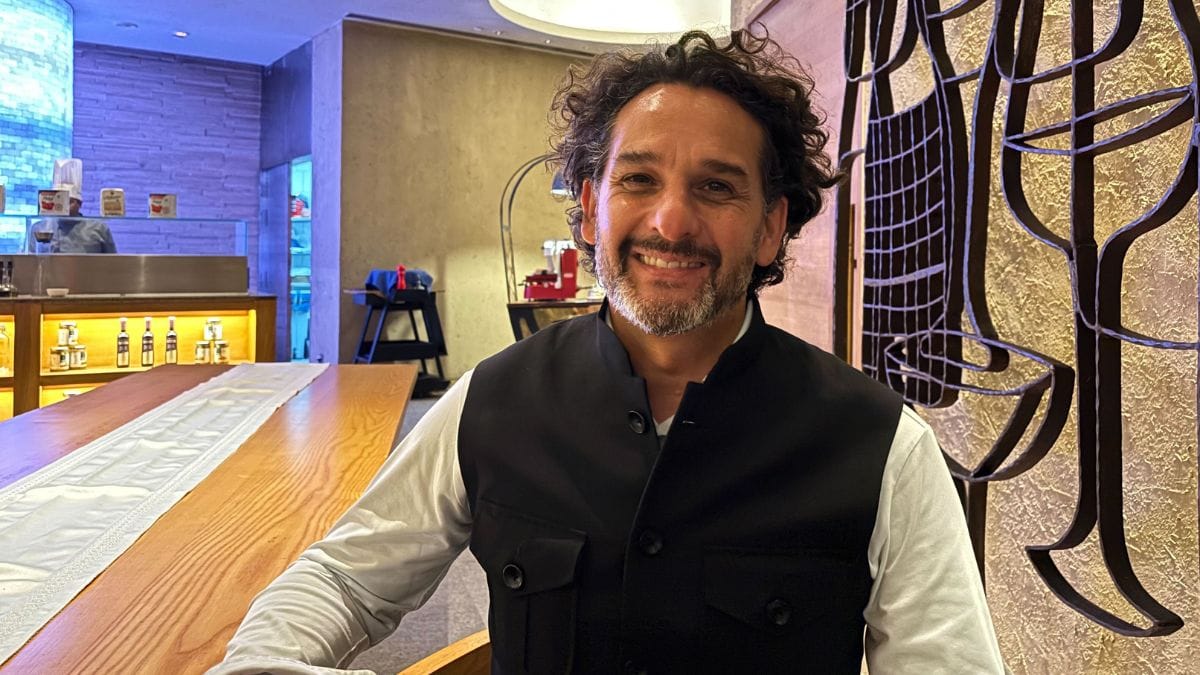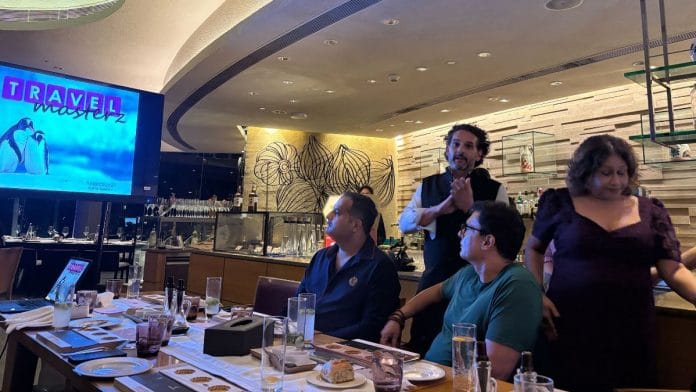Gurugram: Inside Gurugram’s fine-dining restaurant Prego at The Westin, wine glasses paused mid-air when Juan Cristobal Del Bravo appeared on a giant screen amid dimmed lights. The Chilean adjusted his mic as the audience of about 50 settled into their seats.
Juan wasn’t just going to share a travel brochure with Gurugram’s affluent crowd. For the next hour, he transported them 12,000 km away to Antarctica — the last continent on Earth, a land with no cities and no permanent residents, only research stations and scientists.
“India is an emerging market,” said Juan, the Senior Commercial Director at Antarctica 21, a company that specialises in expeditions to the frozen continent. Hosting the night along with Indian firm Travel Masterz, he added, “Many young Indian travellers value comfort and are beginning to understand and consider long-haul destinations like South America.”
For many in the audience, mostly curious travellers in their 40s and 50s, the trip felt like a “now or never” adventure.
Also read: Gurugram or Kudagram? Elites are furious over the garbage emergency
A travel pitch to Antarctica
With India’s outbound tourism rapidly expanding, Antarctica is now emerging as the next frontier for Indian travellers.
Juan’s virtual tour wasn’t a glossy slideshow of itineraries. Instead, he mixed stories, maps, and photographs to explain how journeys to Antarctica have transformed from being nearly impossible to now accessible with relative comfort.
Travellers first fly to Santiago, Chile’s capital, and then on to Punta Arenas, a remote southern port. From there, an aircraft skips the stormy Drake Passage and lands near King George Island. Passengers then board the Magellan Explorer — a small ship carrying just 76 travellers. Days and nights unfold against a backdrop of snow, ice, and colonies of penguins, which Juan said become the defining memory of the trip.

As images of glaciers and glowing southern lights filled the screen, a collective “wow” escaped from the audience.
Penguins appeared on the big screen, surrounded by ice shelves, glaciers, and stormy waters, leaving the group in awe. Travel to Antarctica has changed drastically in the last two decades, Juan explained, as he walked the audience through the eight-day, seven-night itinerary.
During the presentation, the room buzzed with questions about the logistical challenges of travelling to Antarctica. “Will the temperature dip significantly?” “What kind of clothes do we carry?” “Do people fall sick due to weather changes?”
Also read: Antarctica scientists share adventures in video conference—’When vodka freezes, trouble starts’
A cultural shift
Juan spoke like a seasoned traveller. With a background in engineering, he eventually developed a passion for travel and photography. He has been curating expeditions to Antarctica for the past 15 years.
“Social media played an important role,” Juan said. “People see videos and photos, hear stories, and are inspired to go. While the capacity has increased, the demand is being met by travel operators.”
While Antarctica generates no direct economic impact, countries like Chile and Argentina have benefited from being gateways. Chile has become an important adventure destination, with tourists visiting places like Patagonia or the Atacama Desert. Now, Antarctica has been added to the bucket list.
“For people from Chile, it’s not about business, but about connecting people from around the world to this clean, pristine environment and wonder,” Juan said.
As expeditions to Antarctica increase, concerns have been raised about wildlife and environmental damage.
Juan said the travel industry strives to organise clean and safe trips by following all guidelines set by the International Association of Antarctica Tour Operators. These guidelines focus primarily on wildlife encounters, fuel usage, and adopting best environmental practices.
Data shared by Antarctica 21 suggests that up to 80,000 travellers visit Antarctica annually, with the number expected to rise to 1 lakh. Juan’s focus remains on sustainable practices and small-ship operations.
As the evening came to an end, the guests discussed their plans of travel. Some worried over health concerns.
Juan answered each of them patiently before closing the session with one key suggestion: “If you have a chance, take it. Don’t overthink it. You can always go to New York, maybe not Antarctica.”
(Edited by Prashant)






